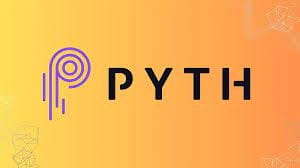Many people, when they hear about Pyth Network, first react with: 'Can its token PYTH be speculated on?' This is a common logic in the crypto world; people always focus on the coin price first but seldom think about the value logic behind the token.
But if you study Pyth's design seriously, you will find that$PYTH it is not a purely speculative token,@Pyth Network more like the 'engine' of the entire ecosystem, with value coming from usage rights rather than short-term speculation.

1. Why does PYTH need to exist?
First, think of a question: Can Pyth operate without tokens? The answer is: Yes, but the efficiency would be very low.
Because data comes at a cost. Exchanges, market makers, and institutions require computational power, bandwidth, and human resources to put data on the chain. Without economic incentives, no one is willing to continuously contribute data.
The first function of PYTH is to incentivize data providers. They continuously supply high-quality data to the chain, allowing the ecosystem to operate in a positive cycle. Without PYTH, it would have been difficult for Pyth to get started.
Two, the role of PYTH in revenue distribution
Another innovation of Pyth is that it not only aims to be a decentralized data source but also a decentralized data market.
In the future, when institutions or applications want to subscribe to higher-quality data, they will need to pay. How should these revenues be distributed? This requires DAO governance.
PYTH plays the role of a governance token here.
Who decides which data sources can join?
How is revenue distributed among data providers, the community, and the protocol treasury?
Should new subscription products be launched?
These decisions are not made by a single company but are determined by voting among participants who hold the tokens. In other words, the PYTH token makes the rules of the data market transparent and decentralized.
Three, use cases: not just voting
Many people think governance is just voting and not very practical. But in the Pyth ecosystem, the use cases for PYTH will become increasingly abundant:
Data subscription payment
In the future, institutions and developers may subscribe to high-quality data directly using PYTH for payment. PYTH plays the role of a 'settlement currency' here, with demand coming from actual use rather than speculation.Staking and security
Some data sources and verification mechanisms require token staking to ensure the credibility of actions. If data providers act maliciously, they may have their stakes confiscated. This mechanism can enhance the security of the entire network.Incentives and liquidity
The fees paid by data consumers will partially flow back to data providers and community participants. This creates a complete closed loop, motivating everyone to promote the development of the Pyth ecosystem.
Four, the difference from traditional token speculation logic
Many tokens in the market are essentially 'air tokens': lacking practical use cases and relying purely on speculative expectations. The logic of PYTH, on the contrary, derives its value not from 'narratives' but from real usage demands.
You can think of it as a kind of 'data fuel'. If more and more DeFi protocols, institutions, and applications want to use Pyth's data, the demand for PYTH will naturally increase. This kind of value is long-term and sustainable, rather than driven by short-term speculation.
Five, my thoughts
From a creator's perspective, I prefer to see PYTH as a 'usage rights token'. It acts like a ticket, determining whether you can enter this 'decentralized data market'.
This is completely different from many so-called 'governance tokens'. Governance is just one part of PYTH's functionality; its greater value lies in binding data acquisition, distribution, and incentives.
In other words, if you believe Pyth can transition from DeFi to a larger market data industry (annual scale exceeding $50 billion), then PYTH is the most direct value capture in this process. Its long-term value is not about short-term fluctuations in token price but about who is using it and how much.
Finally, I want to emphasize: in the crypto industry, the vast majority of tokens are built on stories, while PYTH is one of the few projects that truly embed tokens into business logic. It is not just a speculative tool but a true asset of usage rights.
